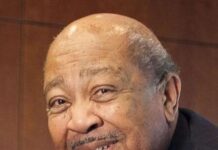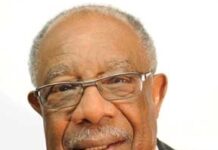 Clark Atlanta University has announced the launch of the HBCU Executive Leadership Institute at the university. The institute aims to serve as an incubator for recruiting and developing the future presidents of the more than 100 historically Black colleges and universities in the United States.
Clark Atlanta University has announced the launch of the HBCU Executive Leadership Institute at the university. The institute aims to serve as an incubator for recruiting and developing the future presidents of the more than 100 historically Black colleges and universities in the United States.
The curriculum will immerse qualified candidates in the various components of effectively leading an HBCU. This includes operations, budgeting, alumni relations, fundraising and development, as well as board governance and human resource management. Participants will also receive coaching and ongoing mentorship from former HBCU leaders. The program seeks to identify qualified candidates to fill vacant HBCU presidencies and other executive leadership positions.
“HBCUs have a clear value proposition and continue to be the standard-bearers of Black excellence across every sector of business and society. Through ELI, we are committed to identifying dynamic leaders who can advance the growth and sustainability of our institutions of higher learning,” said George T. French Jr., president of Clark Atlanta University. “We invite leaders of industry – from Silicon Valley and Wall Street to non-profits, government, higher education, and the creative class – to submit their applications and be a part of history.”
 “As someone who has experienced the unique challenges of leading an HBCU, I believe ELI is a true game-changer,” said Phyllis Worthy Dawkins, former president of Bennett College and project director of the HBCU Executive Leadership Institute. “By filling the pipeline with qualified candidates, we can accelerate development and improve student outcomes, while also preserving the rich heritage that makes HBCUs so special.”
“As someone who has experienced the unique challenges of leading an HBCU, I believe ELI is a true game-changer,” said Phyllis Worthy Dawkins, former president of Bennett College and project director of the HBCU Executive Leadership Institute. “By filling the pipeline with qualified candidates, we can accelerate development and improve student outcomes, while also preserving the rich heritage that makes HBCUs so special.”
The effort is supported by the Rich Foundation, the Charles Stewart Mott Foundation, Microsoft, Toyota, Educational Credit Management Corporation, and a distinguished group of business leaders, educators, and philanthropists.












In other words, you’re going to replicate what the higher education appropriator Dr. M. Gasman has created at UPENN and now Rutgers University. The question that needs to be asked is why did these so-called Black esteem HBCU administrators waited this long in order for this to take place.
Rather than use Gasman’s creations as the standard, perhaps another perspective on the HBCu ELI, is that even with the current aforementioned institutes, there was still a dearth of comprehensive, practical, and innovative training needed to actualize the skillset and acumen required to create stronger HBCU leaders for this and the next century.